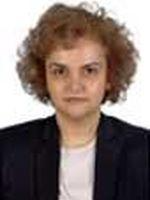Stavroula Stavrakaki (Scopus ID: 6506413912) is a Professor of Linguistics with specialization in Neurolinguistics at AUTh, School of Philosophy, Dept. of Italian Language and Literature. She has been working as a faculty member at AUTh since 2004. Before being a faculty member at AUTh, Prof. Stavrakaki worked as a research or teaching staff member in other universities in Greece and abroad including University
College London and University of Crete. Additionally, she has taught in several postgraduate programs abroad (including Amsterdam, Ferrara, Essex, Potsdam, and UCL).
She has been a Marie-Curie postdoctoral fellow, funded by European Commission, at UCL and participated in several funded research projects including COST actions focusing on child language. She is currently an international partner for the Words in the World project (Social Sciences and Humanities Research Council of Canada, P.I. Garry Libben). Prof. Stavrakaki has published articles in international journals including Brain and Language, Journal of Child Language, British Journal of Developmental Psychology, Journal of Speech, Language and Hearing Research and Aphasiology. She acted as a guest editor for a special issue of First Language on verbal short term memory and syntax in developmental disorders (https://journals.sagepub.com/toc/flaa/40/4). Her research interests focus on the study of language and other cognitive functions in acquired and developmental disorders of neurological or genetic etiology. Her current research focuses on language mapping by Transcranial Magnetic Stimulation and post-operative language recovery in patients with brain tumors. In addition, she investigates the manifestation of language impairment in Developmental Language Disorder and other developmental disorders.
Publication links


